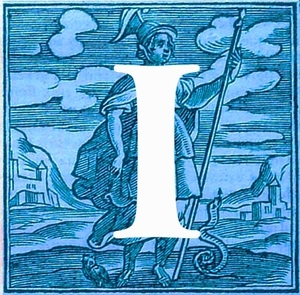MINERVA Platform Pamphlet Series ed. by Lucy Mercer
– Reviewed by Jessica Traynor –
Minerva publishes four-page PDF pamphlets on their elegantly designed website. The ten published to date [Ed.: now twelve, since this review was written] include work by Declan Ryan, Martha Sprackland and Alex MacDonald. The emphasis of the series is on poetry that is thematically connected and that will work as a standalone publication. The short-form nature of the series is intriguing, allowing for a tantalizing taster of each poet’s work. The strongest among these pamphlets take advantage of their nature, being both ephemeral (due to their brevity) and accessible (due to being freely available to download). The majority of the poets featured are emerging voices, reaching a moment of confidence in their development that allows them to relish the challenge of doing something a little different.
Martha Sprackland’s work has been widely featured in UK journals. In her pamphlet ‘On Sharks’, she indulges her obsession with these often under-appreciated sea creatures, exploring the idea of shark as both perfectly-engineered killing machine and metaphorical hunter. In ‘[from] Love Songs to the Shark’ we meet her preferred Mako shark in its metaphorical guise, a shadowy presence that emerges “sportscar-sleek”, with its “black headlamps” that “eye [the poet] slant”. This is a cleverly constructed conceit on anxiety and alienation, delivered in language that is muscular in its description of the shark at the poem’s heart, but pleasingly delicate and considered in its evocation of waterscapes and the desire to surrender:
I have been relinquishing the last of the air.
I have been treading water in an asterism of refracted light.
I have been dreaming of your cold-cast steel
your blue unstoppable body
the war-game apparatus of your fins.
Francine Elena sets herself the challenging task of reimagining tales from Ovid, in ‘On Ovid’s Metamorphoses’. These archetypal stories have proved fodder for so many poetic interpretations that it takes a brave writer to try to add anything new to this particular canon. Fortunately, Elena’s approach is original, updating the stories in a language that is fresh, unselfconscious and wryly humorous, with just the right measure of dread thrown in to remind us of the original subject matter. Elena finds pertinent parallels between these ancient tales and the modern world: Persephone is a woman losing her identity in a relationship, while Echo replicates the vain Narcissus’s Twitter account. Elena demonstrates a talent for ventriloquism, channeling a number of different voices and styles. Particularly successful is her evocation of the vacuous voice of Narcissus, whose examination of his sense of alienation could have come straight from a Justin Bieber interview:
sometimes i think i am not that guy you see in the photos / you know? / i’m like two
identical brothers staring each other out / a contest forever / twins but he is famous /
twins but he is the beautiful one
Sprackland and Elena’s work belongs to the first series of Minerva pamphlets, focusing on the theme of ‘Materials’. Declan Ryan’s pamphlet, ‘Slow Guitar, Soft Trumpet and a Bell’ is part of the ‘Rituals and Invocations Series’ and takes an intriguing approach to its theme, reshaping the language of boxing into a series of poems. Boxing turns out to be a fitting subject matter for poetry, and Ryan manages to capture the drama of the sport in language that is clear and unaffected. The end result is a series of poems that are surprisingly tender, offering new insights into the minds of famous fighters we might have thought we knew well. Ryan demonstrates an ability to choose illuminating quotes from figures such as Mike Tyson and Cassius Clay, but these poems really shine when considering the downfall of over-the-hill boxers such as Trevor Berbick and Joe Louis. In ‘The Young God of the Catskills’, we meditate on Mike Tyson’s brutal and bloodthirsty approach to the sport of boxing, where “every punch is thrown with bad intention and the speed of the devil”, before Ryan turns our attention to the fate of the world champion Tyson ousted at the beginning of his career:
Twenty years on, believing God to be a regular visitor
to his apartment and himself the world champion,
Berbick will be attacked by a twenty year old
with a length of pipe and left to die in a churchyard.
Fifty two at the time of his death, according to boxing records,
some reports will have him as fifty six, others as forty nine.
‘Legally, I’m a spirit’, he will say between this night, and that,
‘I have no age.’
These are just three of the pamphlets featured on the Minerva platform. Other notable mentions are Alex MacDonald’s pamphlet, Home of the Lucky Cat, which displays his usual playful approach, translating Japanese and Korean Instagram accounts of pampered cats. The quirkiness of these found poems belie a creeping sense of existential dread, and cute expressions such as “I am so full of pig” (‘Sakuracos’) are balanced by darker questions: “Is there a God making me sick?” (‘Dooboo Cat’)
Hilary S. Jacqmin’s ‘On Houses and Gardens’ also stands out, with its well-observed and clear-eyed exploration of the historical and cultural significance of the English country house, and how its symbolic meaning has been lost with the decay of empire:
Abandoned by the Duke
because the pent-up River Trent
ran dark with sewage,
the former priory
sits servantless, a gassed hive,
just another lost house that won’t sell. (‘Advertisement, Architectural Supplement to Country Life’)
Each of these pamphlets offers the poet a chance to address a preoccupation or an obsession. They’re a fertile testing ground for ideas, and are for the most part successful; I’ll hope to see some longer sequences emerging from these works in the poets’ collections in future. Minerva is a website worth watching to keep abreast of poetic experiments by some of contemporary poetry’s most interesting emerging voices.




